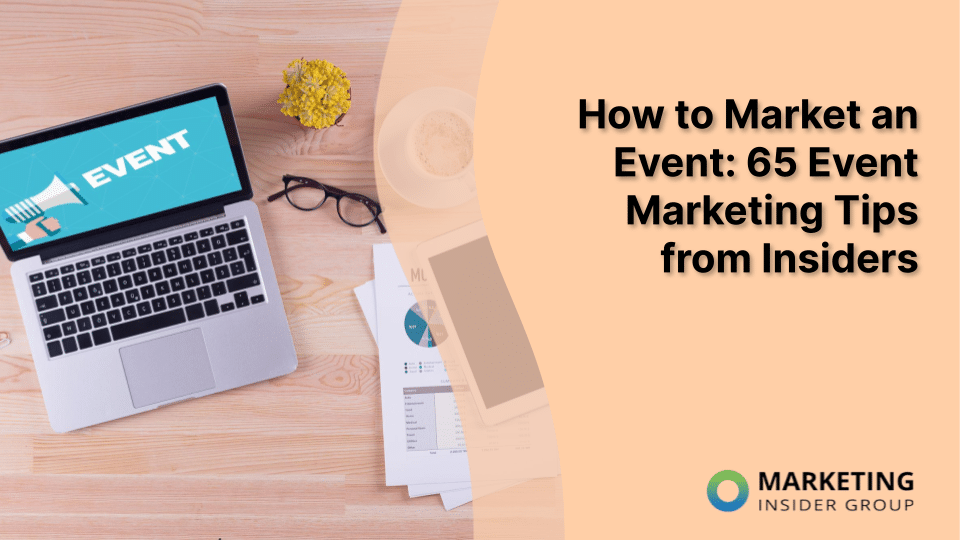
How to Market an Event: 65 Event Marketing Tips from Insiders
A well-planned promotional strategy is vital for a successful event. These event marketing tips and ideas will help you get the word out about your event, reach the right audience, and build buzz for your conference, trade show, or corporate event in the run-up to its launch.
Quick Takeaways:
- An integrated marketing strategy is essential to maximize attendance and build buzz in the run-up to your event.
- You should use a combination of content marketing, social media, email marketing, and video and podcast marketing in order to get the best results.
- Marketing should start several months before your event and continue during and after the event, especially if you’ll be running it regularly.
1. Setup a Website for Your Event
While you can just put a basic landing page and contact form on your existing website, setting up a standalone website for your event means you can focus your branding and SEO efforts on the event itself.
Make sure you come up with a memorable domain name and build the design around clear CTAs that funnel visitors to a registration page.
2. Use Pop-ups on Your Site
Pop-ups may be controversial but there’s no denying that they can boost your conversion rate. Putting a pop-up on your website makes sure that visitors find out about your event and you can direct them to your dedicated site or landing page.
3. Include Guest Speaker Pictures and Bios
Popular speakers can be a huge draw for your event. Make sure you include a speaker page that includes photos of your guest speakers as well as their credentials, experience, and why they’re qualified to speak at your event.
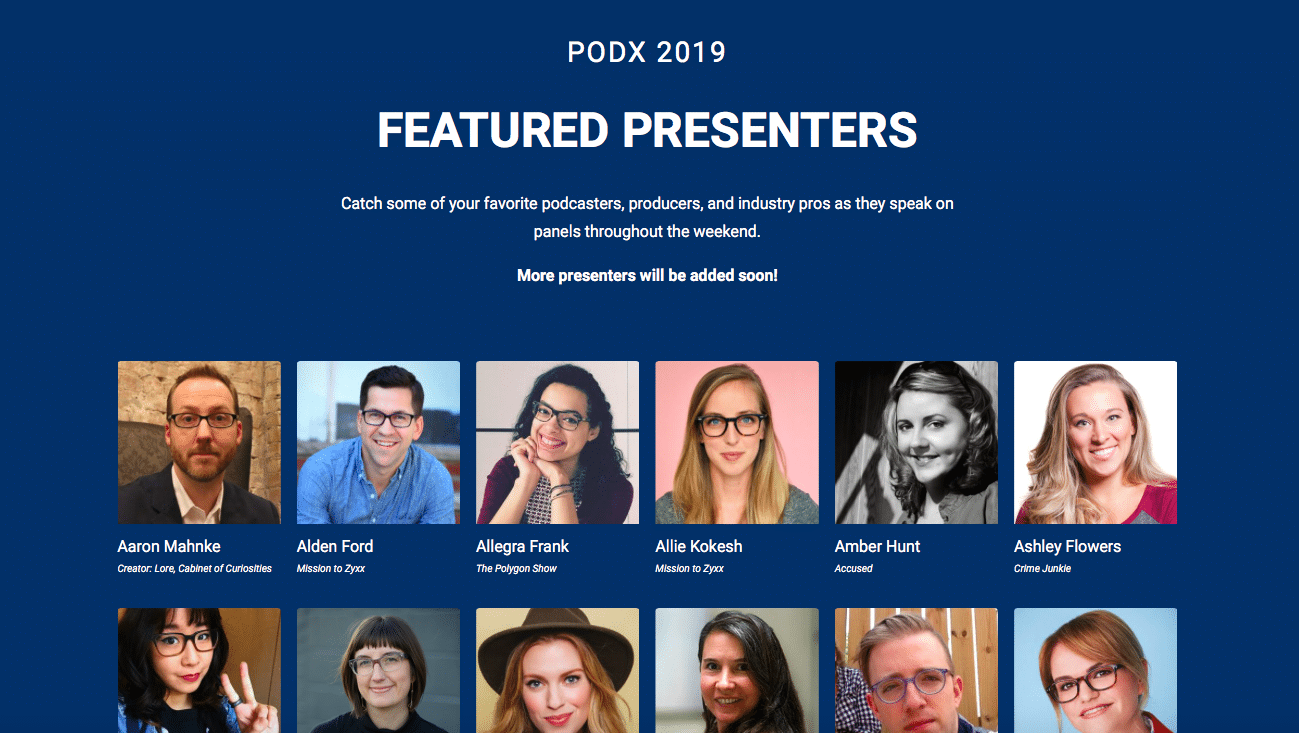
4. Create Videos Showcasing Your Event and Speakers
Videos can be a highly effective form of event marketing, particularly when distributed across social networks like YouTube and Facebook.
You can easily put together a basic video to generate enthusiasm for your event using shots of the venue, details of the schedule, and footage of past events if you’ve run them before.
You can also use individual videos to showcase your speakers, including clips of them speaking. This can also set the mood, showing attendees what they can expect at the presentation.
5. Use Email to Market to Your List
Email can be one of the most effective marketing channels if you already have a list of loyal followers.
Start your email campaign several months before the event by announcing early bird ticket prices and the speaker lineup. You should continue sending emails regularly as the event approaches, with reminders about deadlines on discounted tickets and a finalized schedule and the last push for registrations a few days before the event.
6. Create a Hashtag for Your Event
Before you start promoting your event on social media, choose a hashtag that’s short and easy to remember and use it on every post.
This helps people looking for information about the event find all relevant posts easily, and it’s also a great way to boost engagement and buzz in the run-up to and during the event.
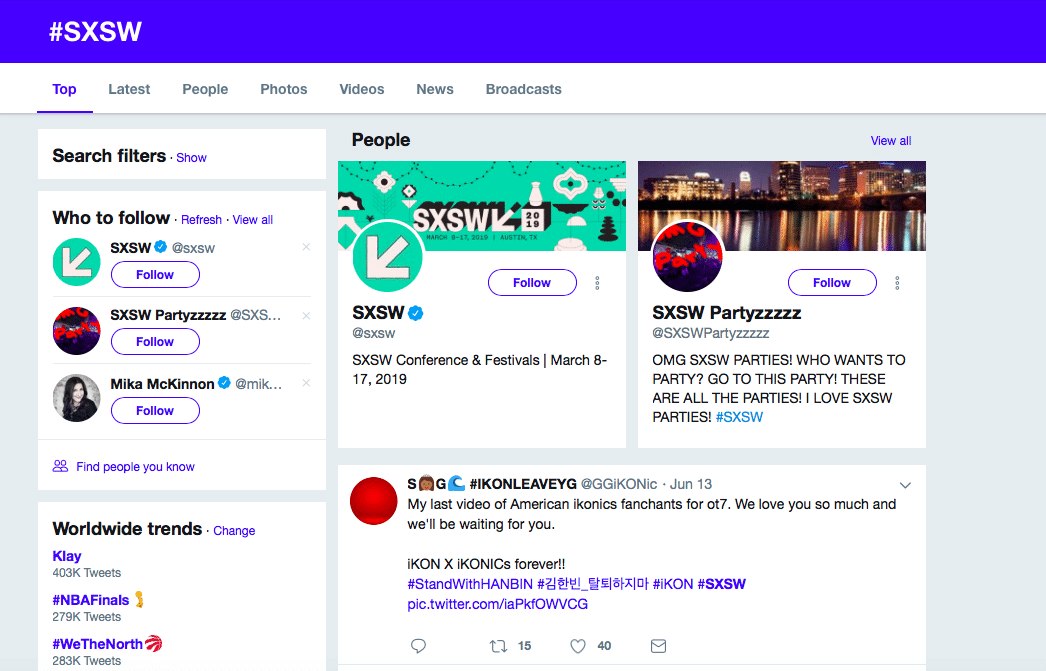
7. Rebrand Your Social Media Profiles for Your Event
The banner graphics on your Facebook and Twitter pages are great places to show off your event and make sure the dates, hashtag, and website are always prominent.
If your event is very large, you may want to consider setting up separate social media accounts for the event. This provides a place for attendees to engage prior to the event and is a handy way to distribute news and updates as you approach the launch day.
8. Blog About Your Event
Writing blog posts about your upcoming event is an easy way to increase interest and push for registrations. It also helps to improve your SEO and attract a new audience who may be interested in attending.
Publish posts regularly in the run-up to your event. They don’t have to be detailed articles – just quick updates to the schedule and guest speaker profiles are enough to keep your readers interested and boost engagement.
9. Utilize Influencer Marketing
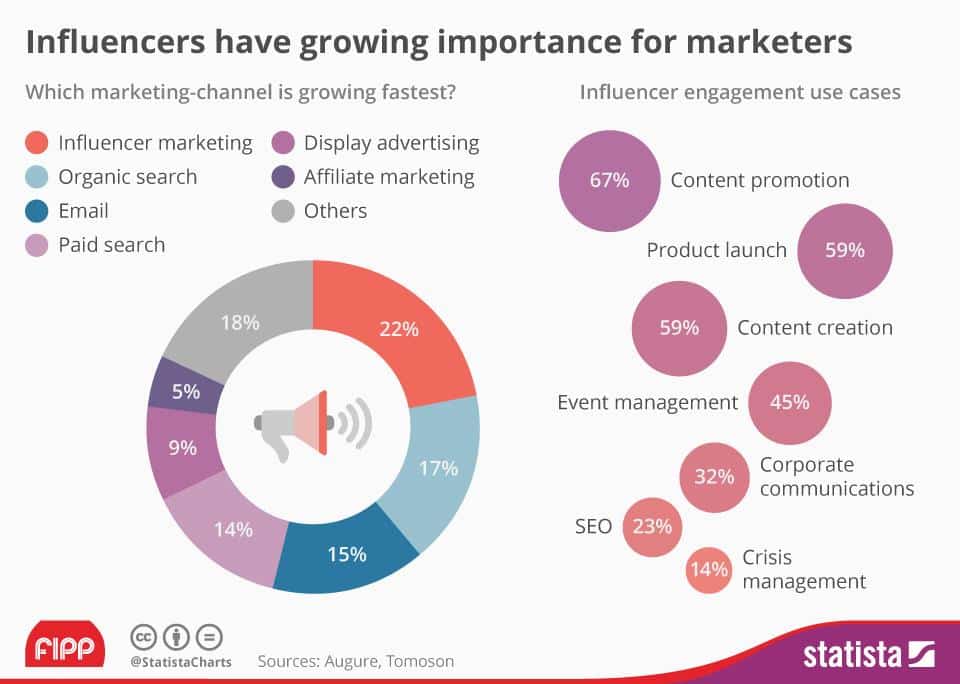
Inviting influencers in your industry to your event can be a great way to reach a wider audience and boost registration.
Having influencers at your event can also help greatly to promote it, particularly if you plan to run a regular event. Make sure you choose a photogenic venue and encourage attendees to post on social media with photos and live video during the event to get the most out of influencer marketing.
10. Create an Affiliate Program
As well as offering free entry and other perks, an affiliate program can be an effective way to encourage influencers to write and post about your event.
Create a unique promotion code for each partner that offers a discount on registration. Each person signed up for your affiliate scheme can then use this code when they post about the event on social media. Promotional codes not only encourage more people to sign up (everyone loves a bargain) but they also enable you to track who is generating the most referrals. You’ll pay a referral fee to your partners for each ticket sale they generate.
11. Write a Press Release
Distributing a press release about your event is the most effective way to get it picked up by media sites and news portals.
Journalists are more likely to use your press release if you can find a unique, newsworthy angle. Make sure to include all relevant dates, details of speakers, and how readers can register for the event.
You can also invite journalists and local media to your event and offer extra opportunities such as an interview with a guest speaker.
12. Use Paid Ads
PPC ads targeting keyword terms on search engines like Google and paid advertisements on social media platforms such as Facebook and Instagram can also be a good way not only to increase awareness of your event but also attract more registrations and achieve event marketing ROI.
Social media advertising, in particular, enables you to target your ads to individual markets, and you can even retarget those who have visited your event website but haven’t bought a ticket yet.
13. Be Interviewed on Relevant Podcasts
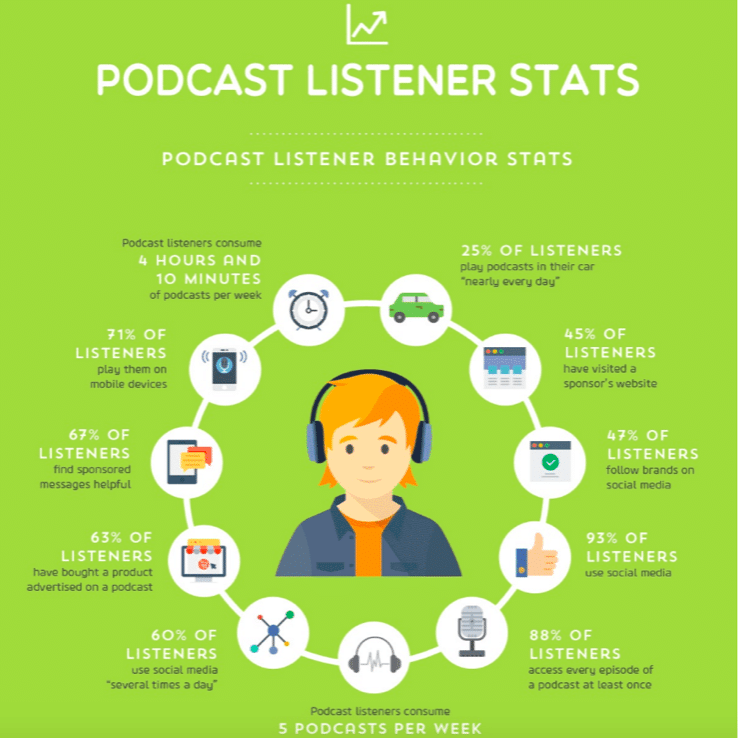
Podcast interview marketing can be a fantastic way to build buzz about your event in certain industries. Some studies show that traffic from podcast interviews converts 25x better than blog traffic.
You can also encourage your guest speakers to be on podcasts, talking about their own work and brand, and mentioning your event.
Another option is to sponsor podcast episodes. With this paid method of advertising, the podcast host will introduce and talk about your event before launching into the main topic of the podcast. This can be particularly effective if you offer a promotional code for discounted registration to podcast listeners.
14. Optimize SEO on Your Event Website
Making your event landing page or website friendly to search engines is vital for attracting visitors who may not already know about your event and brand.
Optimizing for terms such as the topic and location of your event is essential as people looking for events like yours will be typing these terms into the search engine. For example: “digital marketing conference Florida” or “baby product trade show Chicago”.
Make sure to include your SEO keywords in the title and headings of your website, and add as much content as you can to create more opportunities for attracting search engine traffic.
15. Submit Your Site to Industry Websites and Directories
Many industry websites include a calendar or list of upcoming events that may be of interest for their followers, for example: Smashing Magazine’s directory of web design conferences.
These lists are often well established and have strong SEO, so it makes sense to get your event listed on as many of them as possible.
16. Don’t Stop Marketing After the Event
While there’s no doubt that the planning and execution of your B2B event are crucial elements of its success, what you may not be thinking about at this moment is how your business will be following up on that event. That’s understandable — with so much to do in the lead-up to the event and everything that goes into running the show, looking ahead to when it’s over is probably the last thing on your mind.
However, how your business follows up on your B2B event can make a significant difference in the impact it has for you and your customers and partners. If you’re not being thorough in your approach to the aftermath of the event, it’s quite possible that all of the effort you have put into it will add up to very little in terms of demonstrable success for your business. That’s why having a plan of action for what you do after your B2B event is just as important as having a plan for what happens during the event.
In the days and weeks following your B2B event, you should concentrate on combing through the data concerning individual sessions as well as the event as a whole. Take stock of which elements of the event were popular and which might need some fine-tuning or a complete overhaul.
Engagement is a huge factor for any event, and the same is true for follow-up. By debriefing the event staff as well as attendees, you will be able to identify which areas of the event were the strongest as well as any wrinkles that need to be addressed for next year.
Your sales team also should have a plan for engaging with attendees after the event to develop relationships that could blossom into new prospects. You can keep an eye on attendees through social media after the event and watch for any posts they make about the event.
You probably blitzed traditional and social media in the lead-up to your event to get the word out, but don’t forget to keep up with these channels after the fact. Putting photos and videos from the event out there through social media as well as traditional media keeps the conversation about your event going well after it’s over.
Planning online events like webinars along with other types of follow-up content also keeps attendees engaged with your event after they leave. See the infographic below for a rundown of some of the most helpful tips your business can follow after your event ends and find out how you can carry the momentum over into next year.

30 Tips from Star Speakers on How to Rock Your Next Event
Almost every day, I have the pleasure of speaking with one of the most under-appreciated and hardest working group of people: Event Organizers and Conference Planners.
That’s why I wrote my suggestions from some of the best marketing speakers to help you make the most of your next event.
Many of those speakers offered suggestions for event organizers on how to improve the events for speakers. They also provided feedback on their favorite marketing events, tips for aspiring speakers, and advice for event sponsors (all coming soon) .
Speaking at events is both an honor and a passion for me. I want to inspire conference attendees to think differently about the challenges they face. And to take home practical tips they can implement when they get back to the office.
This article provides tips from some of the best speakers to help them help you, to rock your next event.
My favorite tips for event organizers: When you book me to speak, I want to do everything I can to provide the best experience for you and your audience! That’s why I offer to do a promo video before the event. A Q&A for your blog about my topic. An informal “ask me anything” following my talk, a post-speech “live” promo video for your next day/event. Books and book signing. And more. So ask me how I can help you!
The most common tips from the speakers below include:
- Add music anywhere you can to get the energy up and keep the place rocking
- Better Speaker Introductions and Session Descriptions
- Don’t ask for your speakers’ slides too far in advance
- Try to avoid forcing conference templates on your speakers
- Communicate the conference theme so we can customize our talk
- Better Lighting, Confidence Monitors, Great A/V People
Without further ado, here are rapid-fire tips from some of the best speakers the marketing industry has ever known.
Douglas Burdett: Don’t “wing” the introduction – create an accurate/factual introduction or read the one I have provided (or let me introduce myself).
Jay Acunzo: Make the speaker intros snappier and more energetic! Just listening to most intros, you’d assume the event organizers (or their volunteers) are bored by the upcoming speaker. To start, ditch the list of past accomplishments, and tailor a speaker’s bio to your audience the way you ask speakers to tailor their message. The best I’ve ever seen was a tech vendor whose event manager talked to me for literally 60 seconds, then described what I was like as a person from that one interaction, what article of mine she read that resonated with her and might with the room, and what my overarching message was. She closed with, “Oh yeah, and he’s worked at Google, HubSpot, and in venture capital.” The audience was way more engaged, because they care what THEY will get out of my talk, not what I’VE listed on LinkedIn.
Doug Kessler: Generally, I’ve felt really well taken care of. I spoke to a huge, almost empty room once and that was traumatic (wrote about it in this ‘every speaker’s nightmare’ post). My session had fallen out of the agenda on the event app. It happens.
One thing: I was at a general marketing event and the only two speakers talking about content marketing were in the same slot. Me and Joe Pulizzi (I kicked his ass). (In my dreams). So scheduling conflict is a thing.
Also: I really like to be able to use Presenter Tools when I present — seeing the next slide and maybe even my notes. Probably a bad habit but for a new talk it can be helpful. So a confidence monitor with that on it is always cool…
Oh, and NO GREEN M&Ms in the speaker’s room! For god’s sake READ THE RIDER, dudes. Sheesh.
Ardath Albee: One of the things I really like is having a confidence monitor in front of the stage so that I can stay focused on my audience. When I get involved in speaking, one glance reminds me of which slide comes next, as well as what the audience is looking at behind me. The other thing is not requesting the submission of presentation decks 2 months before the conference. I’m usually working on another event’s deck then. And I want to provide the freshest, most up to date session I can.
Samantha Stone: I’m so glad you asked! One big challenge in preparing a presentation at a conference, is that we generally have no idea what anyone else is presenting. It’s extremely helpful to know in advance the key messages at the event. This allows us, as speakers, to reinforce those messages with how-to tips, case studies and other guidance or perspectives that might be helpful for participants as they seek to apply those new ideas to their own businesses.
Melissa Breker: For event organizers, let speakers know more about your audience. Share any research you have about their questions, needs or desires, or share results from the last event. It helps presenters target and align presentations more closely to what people are looking to learn about, or even inspired by.
Kerry O’Shea Gorgone: Choose good quality speakers, then trust us to deliver the goods. You can certainly request slide decks months in advance, but I am going to make edits until the last minute. What I prefer to do is provide a blueprint of my presentation (desired action / main point, key insights, data points and anecdotes for each, etc.), so they know I’ve prepared. That way there’s no versioning problem with my slides!
Robert Rose: The number one tip is lighting, sound and room setup. If you’re going to do an event in a hotel, just KNOW that the lighting in those meeting rooms is awful. Those fluorescents will wash out the screens with the presentations. Invest in good lighting, a decent sound setup, and set up the room for about 10% fewer than the crowd you expect. A room that holds 50 looks empty with twenty five people in it. But a room that holds 25 is rocking with 30 people in it. And for Pete’s sake move em up close. There’s nothing worse than a 30 foot gap between you and the front row…
Ekaterina Walter: Help speakers prepare the talk that resonates:
- Provide the detailed breakdown of the audience in attendance to help understand how best to make the talk relevant
- Outline the topics other speakers will be covering so that your talk has more context and tie back to the broader event
- Share the results of the pre-event survey about attendees’ expectations
Todd Wheatland: The worst event organizers don’t seem to care as much about the content of the day as getting names locked down on an agenda to drive sales, and then making sure everyone turns up.
The best event organizers seem to operate with two things in common:
- A philosophy of wanting their speakers to feel very special
- They play a very active role in the topic curation for the event, and work as much or as little as is necessary to ensure that the speech being developed will deliver value to their audience.
John Hall: Develop content strategies around your events rather than just advertisements to promote them. Speakers and organizers have a shared interest in getting the most engaged audiences to attend. By collaborating to create and distribute content beforehand, we can get more members of the right audiences together in the same room, and they’ll find the whole experience to be more valuable.
I’m happy to offer quotes for articles and promote the event before and after through social or on my columns in Forbes and Inc., but it’s even more effective when organizers are just as committed.
Matt Heinz: Help me help you! I’m typically happy to help promote the event, do some pre-event content to our audience and on our blog, etc. Just ask!
Ellen Gomes: I think understanding or having examples of feedback that presenters in your track received in previous years is really helpful. I want to create a presentation that suits the needs of my audience and understanding what worked and didn’t from the year before is very helpful.
Andrew Davis: I have two easy ones: killer intro music and build the stage you want next year (it’s the most photographed piece of your event – go for it!)
Rebecca Lieb: Information and details! Let me know as quickly as possible not only the dates of the conference, but also the date and time you’d like me to speak so I can clear my calendar and make travel arrangements. Do you have specifications for the presentation? Tell me now, not 3 hours in advance of my talk that the deck needs to be 16:9. Help me to make you look good by sharing information – no detail too small!
Joe Pulizzi: Book signings should happen after the presentation, not before (this happens a lot). It also still amazes me how many conferences reach out about two or three months before their event. Not enough time to open up a schedule date.
Carlos Gil: A few things that come to mind are: music, delivery of slides, and audience participation. As a speaker, one of the worst feelings is speaking to an empty room or one that doesn’t seem interested or engaged in my material. For one, it would be great if conference organizers poll their attendee’s ahead of time so I can tailor my message and content to specifically meet their needs. Two, it would be nice for them to encourage attendance and participation. While attendees pay hard earned money or budget, as a speaker we are also investing our time and resources to develop content and get there. Speaking of which, event organizers often press for slides to be turned in 2-3 weeks before an event which is unrealistic if you’re like myself who is balancing a working schedule, family, and public speaking. A more realistic turnaround time is more like 48-72 hours before the event. Last, but tied to my first point, is the mood and tone within the room I am speaking in. I am naturally a high energy guy with just coffee but add a little music to the mix and it takes my energy to another level. Have speakers pick their choice of entry music and give them that extra boost as they take the stage.
Marcus Sheridan: I just wrote an entire post on this. The main points:
- Music always
- Double-sided name tags
- Stop obsessing over the speaker’s slides
- Eliminate panels completely
- Explain how much effort goes into the wifi and set the expectation that it might not work
Lee Odden: I really appreciate event organizers that provide speakers guidelines, expectations and reasonable timeframes. It also helps to understand in who the audience is, and in general terms, what has worked and what hasn’t (based on their analysis of past audience data). Many event organizers don’t or won’t share that info.
I like events like Social Media Marketing World where Phil Mershon actually calls and talk to you about your topic and what might best fit. You don’t feel like a commodity speaker to them. While it doesn’t directly affect the presentation, it really sets the tone that they make some kind of travel accommodations for many or most speakers and provide just the right amount of updates and reminders about the what, when and where of the conference. They’ve even called my office to see what kind of speaker appreciate gift I might like most – and that’s what they sent me.
Going the extra mile for speakers to give the best presentation can be a challenge if you have 200 speakers on deck. But for small events, it’s doable. For example, Hana Abaza at Uberflip’s first user conference sent someone out to get bacon covered maple frosting donuts for me so I could give them away for the best tweets during my presentation. The audience loved it!
Andrea Fryrear: If you want to make speakers feel welcome, have a speakers’ reception. It creates a feeling of team unity, where we’re all “in it together” to provide as much value as possible to the attendees in the next few days. Around the presentation itself, please, please, please give the name and cell phone number of someone who can manage any logistical problems. There’s nothing worse than chasing down a missing badge or something instead of focusing on delivering a great talk.
Carlos Hidalgo: I see so many conferences going to a pay-to-play model which I think limits the potential for great content. I believe in giving sponsors the opportunity to speak, but to limit to only that limits who you can put on stage. Biggest advice to conference organizers is over communicate with your speakers and involve them as much as possible to the promotion and build up to the event. When a speaker is excited to be there it will come out in their delivery
Ian Cleary: I think every speaking event should have a monitor so speakers that are comfortable not speaking behind a podium don’t have to look at the big screen to see what’s on the slides. I really like talking right in front of the audience and not having any barrier in front of me (i..e the podium) but quite often the conferences do not have a monitor.
AJ Huisman: That would be top AV people, hands down! Timing is everything so videos that don’t start (there should be a video now!), sound that does not work (is this thing even on?!) or clickers from hell (next slide please!) are all show stoppers, literally! Bring in the pro’s!
Gini Dietrich: Yes! Trust us! We do this a lot. A lot, a lot. Let us work with our own technology. We are comfortable with it and can fix it if it goes down. Don’t force your templates on us. Sure, we’re happy to promote you and your event, but we also need to get some mileage out of it. Don’t require us to send in scripts or decks ahead of time. See…we do this a lot. We’re pros. Don’t ask us to add words to our slides. Most of us use images that support our speeches and don’t believe in words or bullets points on slides. If you record the speech, let us have a copy of it. We want to make you look good. We want to be successful for you. And we’d like respect for being pros.
Arnie Kuenn: My pet peeve is when they insist the speakers use their conference template for presentations. Depending on how crazy the template is, it can take a lot of precious time making our images and content conform to their template. I get the branding, but maybe a compromise is just to ask speakers to include the event logo and hashtag as often as possible on the slides.
Margaret Molloy: Consider social media. Really! Walk in the shoes of an attendee who wants to realtime tweet/Instagram the insights. Example 1: Make it easy for speakers and guests to amplify the content before, during, and after the event. It’s astounding how few events publish speaker Twitter handles on the agendas. And be mindful of the lighting. Many stages are backlit which makes for poor cellphone pictures.
Pam Didner: Please add a “confidence” monitor in every room so that a speaker can see the slides in front of them. This type of service is reserved for keynotes, but it should be avail. for all sessions and workshops.
Kristina Halvorson: In general, I really, really appreciate it when conference organizers are respectful of my time and experience. For example, it’s important to keep communication efficient—it’s enormously difficult when I have 1-2 emails a week with instructions and reminders. Keep it simple and streamlined. Also: not to be a diva, but I don’t want to use your conference template when I’ve spent 50+ hours designing my slides. If a conference is concerned about slide design or content, I think it’s more effective to commit resources to reviewing speaker slides for substance, then hopping on the phone with the speaker to discuss any opportunities for improvement.
Stephanie Losee: There are so many ways an event organizer can demonstrate their appreciation for the work that goes into crafting a speech worthy of an audience’s attention and taking time away from the office. Covering travel and hotel, sending a speaker’s gift and thank-you note—it doesn’t take much, but those gestures are often overlooked. As for the process, please be kind when we hand in our slides late!
Mark Schaefer: I’ve been pretty lucky I guess and don’t have a lot of speaking horror stories. One pet peeve is conferences that insist on a certain power point template. We should be beyond that. Let speakers be as creative as they can be. Trust me, they know where they are and don’t need a standard template to remind them!
Ann Handley: Make sure the A/V people are vested, and that they are committed to making the experience for the audience as great as it can be. Sound, lighting, slide, stage setups issues can make or break an attendee experience. (And rattle a speaker.)
Side note: My dream is to someday travel with my own A/V person who goes in the day before to make sure we’re all good to go. Applicants welcome.
Andy Crestodina: I love this question. Here’s my top tip for event organizers. Don’t push your speakers to create something new. Unless you think that most of your audience has seen the content before, let your speakers give the presentation that they know audiences love. Ask them for their “greatest hits” and you’ll get their best work.
Kristen Craft: I love it when event organizers add due dates to my cal (in the form of a meeting request). It makes it so much easier to remember when my outline, draft, and final slides are due. Oh! And during the Unbounce CTAConf, the organizers sent flowers to someone who supported/enabled us to be there. My husband was wowed that he got a bouquet for holding down the fort with our 2 kids!
Scott Brinker: As both a speaker and a conference organizer, I have a lot of empathy for both sides. As a speaker, a few simple logistical features are always appreciated: reference monitor for the slides, a large countdown clock to keep on time, and easy access to a bottle of water.
Carla Johnson: I like to know logistical basics upfront because I forget to ask about them until later in the process. Things such as what size screen (standard or wide format), will it be videotaped, should the session include Q&A, do people need to pre-register for sessions and deadlines throughout the process.
Content Marketing for Events
Content is what will make your event remarkable and memorable (other than great swag ideas, of course)!
Need help with content marketing for your next event? If you are ready to get more traffic to your site with quality content that’s consistently published, check out our Content Builder Service. Set up a quick consultation, and I’ll send you a free PDF version of my books. Get started today and generate more traffic and leads for your business.






